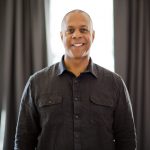We know that both businesses and employees benefit when employees bring their authentic selves to work. And there’s tons of evidence that diverse teams perform better. If you think of diversity more broadly than just the typical boxes on a census form, then we all stand to benefit the more we learn to show up as our unique, glorious selves, quirks and all. “Everyone has strengths and weaknesses,” Plum Organics co-founder and REBBL CEO Sheryl O’Loughlin reminds us. “The key is to not let your perspective about what’s unfavorable cloud your vision of what’s valuable.”
We asked our network of leaders and coaches to weigh in on exactly how to learn what your own unique strengths are, and then how best to deploy them in the workplace.
Start by knowing your strengths
“Most of us do not spend enough time really becoming clear about who we are, why we matter, and where we are dang strong,” says Moe Carrick, founder of Moementum Inc and co-author of “Fit Matters: How to Love Your Job.” “Give yourself the green light to look at your superpowers with fresh eyes and an open heart,” she advises. “Resist your natural sense of humility that tells you to hide your light under a bushel. Deep and real self-awareness looks good on you.”
Here are a few practices for cultivating that awareness.
Practices to Do Alone
The best stuff exercise
“Define favorite memories (PDF) in your life where you had a good time and did a good job,” recommends Diana Chapman, co-founder of The Conscious Leadership Group. “As you tell the stories of those eight memories, you and will find common themes in most of them that point to your greatest gifts.”
Notice what feels good
“If doors open easily and work is free-flowing then chances are you are using your gifts,” says Catherine Bell, author of “The Awakened Company” and founder of BluEra. “Similarly, if it feels easy to put ‘sweat equity,’ in then chances are you are capitalizing on your strengths because you are freaking passionate about what you are doing. And what you are doing in the moment is more meaningful than any amount of capital.”
Find the gifts in frustration
“Isn’t it funny how certain things really bug you, and not others?,” asks Jessica Hartung, founder and CEO of Integrated Work. “People get easily irritated by those who are doing something poorly that they themselves find pretty simple to do. Do you sometimes find yourself saying ‘Why don’t they just….?’ And then you mentally list what you already know how to do, which they are completely missing. It just makes sense, why don’t they do it?
What is lost on most people about this circumstance is the flip side. If the task is easy for you — SO easy you can’t believe they don’t see what is needed — maybe it’s not an indicator of how dense others are, but instead, an indicator of where you are particularly gifted and strong.
Where we have a specific aptitude, the critical factors stand out to us. It’s like they’re shining in neon, saying ‘Obviously!’ Wouldn’t it be ironic if the frustration you feel at watching others flub up what you already know how to do is like a big arrow pointing you to the location where your gifts lie? Begin noticing these moments of frustration and using them as clues to your strengths.”
Look to the Past
“I work to rediscover my inner child,” says O’Loughlin. “For example, as a high-schooler, I loved to laugh with my best friends. It was just pure joy to let loose and laugh so hard I was in tears. Now, I find a way to tap back into this with my team at REBBL. I revel in the moments we are together and being ourselves. Playing allows me to be better at my job and more connected to my teammates. Another example: In college, I’d get really excited and passionate when I learned something new. I’d spend hours immersed in what I was learning, wanting to get deeper and deeper into the topic because it felt like pure joy to me. Now, at REBBL, I’m discovering the same thrill I felt in college as I learn more about regenerative business and agriculture and the power it has to make a difference to people in our company and our communities as well as our earth. I spend hours engrossed in the topic, my mind exploding with ideas on how we can use this concepts to make such a difference in the world, especially if we can do it in cooperation with other business.”
Practices to do With Others
Superpower exercise
“Ask a bunch of people what they think your superpower is,” recommends Johanna Lyman, founder and CEO of NextGen Orgs. “Chances are, it’s something that comes so naturally to you that you don’t give it the credit it’s due. (For me it’s my crazy strong intuition) Then make a commitment do do a lot more of that. Since it’s probably been quasi-invisible to you, you may not be leveraging it enough.”
Appreciation Exercise
“Sit in the hot seat and ask colleagues to finish this sentence, ‘I appreciate you for ___________________,’” says Chapman. “Get lots to feedback.”
Genius email campaign
Another idea from Chapman and the Conscious Leaders Group: Send out these questions (PDF) to your colleagues and find out what your gifts are.
Then Get Smart About Deploying Those Strengths
Once you have a good sense of the things you’re uniquely best at, use these ideas to maximize their value in the workplace.
Believe in Yourself
“Don’t waste time at work worrying that you are not enough and fearing that you have to enter slowly and carefully to offer your gifts,” says Moementum’s Carrick. “Shame researcher Brene Brown says that ‘owning our story is the bravest thing we ever do.’ Be brave.”
Lori Hanau, founder of Global Round Table Leadership, concurs: “I trust myself and my unique gifts. I trust that I am in this workplace with purpose. I trust that bringing my gifts forward is the best way I can be useful, even if I don’t perceive them as being received in the way I desire. Can I trust it all — what bringing my gifts to bear allows me to see and experience and where my actions take me?”
Be Vulnerable.
“In order to maximize your strengths, it’s critical to be willing to be vulnerable with your weakness,” Carrick says. “None of us is only composed of strengths, so get real about your soft underbelly as well. People will relate to your weaknesses and real acknowledgment of these will elevate trust and genuine connection.”
Hanau points out that being willing to go first is a critical way to practice this. “If I am courageous enough to step in first with my gifts,” she says, “even when it means being vulnerable in doing so, I am honoring myself while modeling the behavior I wish to see and be met with in my workplace. This makes space for others to also step in with their unique gifts, building a more honest, meaningful and creative workplace culture. By being willing to go first, I become an invitation for others to come on in. As we offer our unique gifts together, we start maximizing our potential and living into the genius of our grand diversity.”
Combine several strengths to make something unique
“When you combine two or more aspects of your work capabilities into a nuanced blend, you have a unique strength,” says Hartung of Integrated Work. “Poet David Whyte’s approach to inspiring real conversations by bringing poetry into corporate meetings embodies this principle. Not everyone could pull that off. Leverage two or more strong abilities in combination and you have the launch point for a unique contribution — a signature strength. Imagine the power of pairing design-thinking facilitation with project management skills, or knowledge of astronomy and great storytelling. Your unique strength is not only valuable in the world, but the feeling of using two strengths you love in combination is incredibly satisfying.”
Sell yourself effectively
“As with all things, it’s always up to us to make the case for how we can help, not wait for our companies to come to us,” says executive coach Gerry Valentine. “First, you need to be deeply knowledgeable about your company — what’s the vision/mission/values; what are the big problems your company needs to solve; what’s going on in the market place that’s really important.
“Second, you need to be deeply knowledgeable about yourself, and how you deliver value; note emphasis on how you deliver value. It’s wonderful to have a unique strength, it may give you a lot of pride and pleasure, but how do you use that strength to deliver value to a company? For example, be able to say, ‘I use my to deliver , by ’
“Finally, sell yourself. Armed with your value statement, now go sell it — to your boss, your CEO, your customers, etc. If they don’t by it, then you need to understand why they’re not buying, and go back to point number two. Always remember, it’s on you to make the case, not on them to see why your strength is valuable.”
Joe Mechlinski, CEO of SHIFT, provides a great example of making that case, connecting a strength to a business outcome. “In Adam Grant’s book ‘Originals: How Non-Conformists Move the World,’ he coins the archetype ‘disagreeable giver’ – a person who, on the surface, is rough and tough but ultimately has the best interest of others at heart,” Mechlinksi says. “According to Grant, ‘they are the people who are willing to give you the critical feedback that you don’t want to hear but you need to hear.’ I fit this archetype through and through. Past that, I can identify others like this in my organization, as well as in client organizations.
“These individuals aren’t always the easiest to work with, they tend to have high expectations, can come across as opinionated, and their communication can sometimes be unintentionally curt. On the other hand, these individuals are powerful in that they tend not to waste time, they value resources, they’re innately thoughtful, and they’re fast decision-makers.”
“To optimize their unique skill sets, disagreeable-givers are especially effective in the following scenarios,” Mechlinski reports:
- When everyone agrees and you need a dissenting point of view
- When tough but fair and honest feedback needs to be thoughtfully delivered
- When the team is hitting a wall in finding a solution or determining strategy execution
Once you know your unique strengths, list their downsides, and the possible situations where they can be the most valuable.
Practice integrating your strengths with the rest of your life
“I see the overall goal of my life as developing myself as a more compassionate, thriving human being,” says Gracy Obuchowicz, founder of Beautiful Life Self-Care. “Understanding this has helped me to see that my work and the rest of my life don’t have to be opposed, but instead they can work together to help me grow as a whole person. As I let go of the unrealistic boundaries between the two, I notice more of my true self slipping into my client conversations and marketing efforts as I speak my honest opinions or share a risky idea. This almost always makes me feel more authentic in my business dealings and often leads to successful new ventures. Also, this integration has helped me to become more disciplined about my habits in my home life. Sitting on the couch watching TV for hours doesn’t feel like the best self I want to bring into my business dealings. Instead, I get motivated to take a walk, learn something new or reach out to a loved one. Simply put, work–life integration helps me to be myself all of the time.”
Next Level: Invite others to reveal their strengths
Even as you’re learning to identify and maximize your own unique strengths, you can help your team get even stronger by helping others see themselves.
“I have seen leaders use clever sentence stem for check-ins that give people a chance to express and be seen for their quirkiness,” says Simon D’Arcy, creator of CultureCoding.com and a partner at Evolution. “They are efficient (a group can do one of these in under 10 minutes) and they often help people see each other in new ways.”
For example:
- If I could have one superpower, I would choose _____________ because _____________.
- If I could back in time and visit any place at anytime, I would go to__________ in the year_____________ because _____________.
- If I had a power animal, it would be _____________.
“Also it’s a good idea to work on honoring different individual creative expressions,” D’Arcy says. “Pixar gives each animator a budget to design and produce their own vision of their office space. Some of them look like a pirate ship. Other’s a vacation beach scene. Others the scene from a movie. All of them different according to the individual artist.”
The bottom line
Figuring out your true strengths, then practicing deploying them, can help you do better work, enjoy it more, and make more of a difference in the world. And the more you can contributed by being your true self at work, the more you’ll empower others to do so too.





